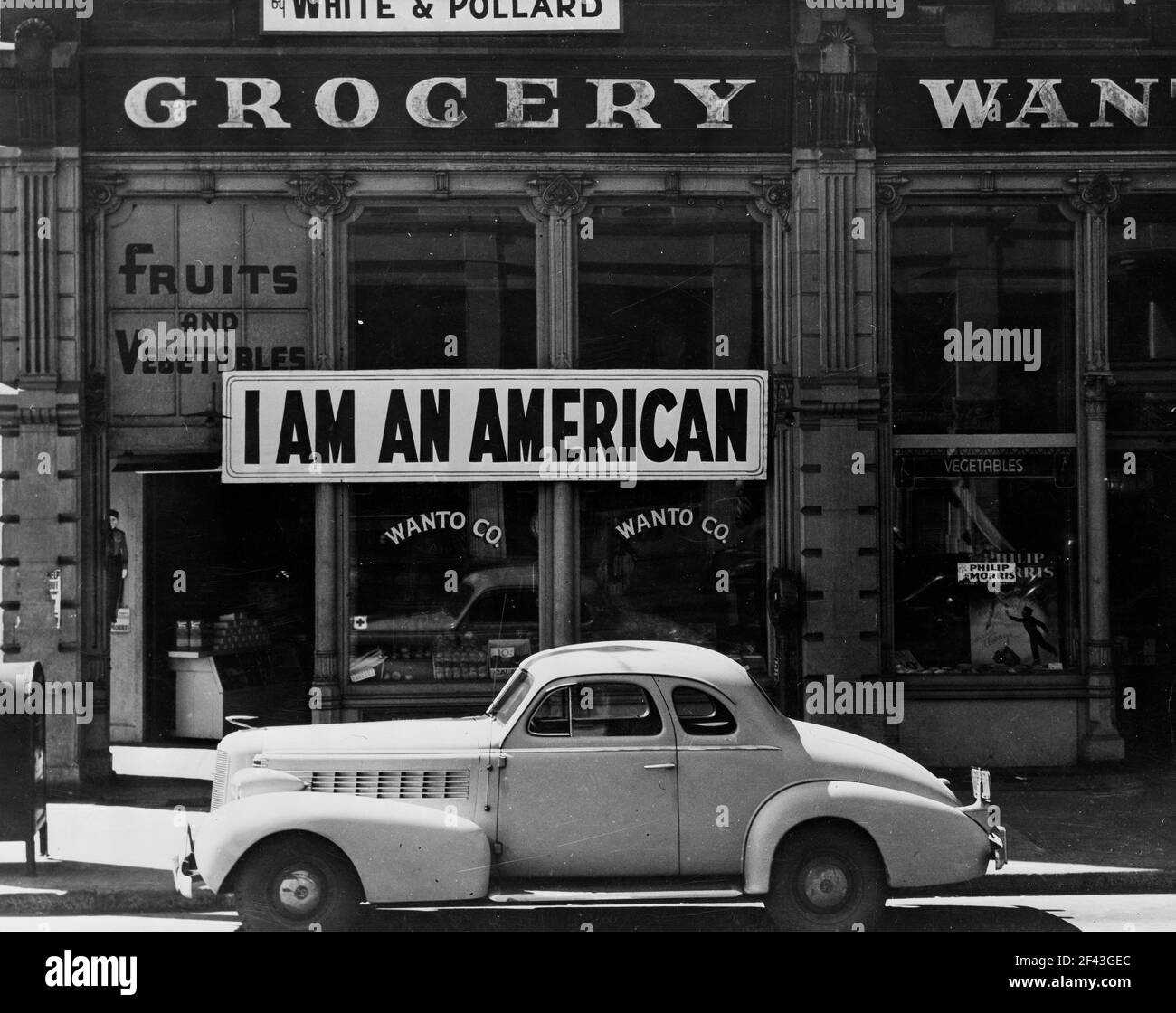Wanto Co. store located at 401 - 403 Eighth and Franklin Streets in Oakland, California. The business was owned by the Matsuda family. Tatsuro Matsuda, a University of California graduate, commissioned and installed the "I am an American" sign.Photograph by Dorothea Lange.

Image details
Contributor:
American Photo Archive / Alamy Stock PhotoImage ID:
2F43GECFile size:
70.2 MB (2.9 MB Compressed download)Releases:
Model - no | Property - noDo I need a release?Dimensions:
5565 x 4410 px | 47.1 x 37.3 cm | 18.6 x 14.7 inches | 300dpiDate taken:
1938Location:
United StatesMore information:
This image could have imperfections as it’s either historical or reportage.
The Great Depression was a severe worldwide economic depression that took place mostly during the 1930s, beginning in the United States. The timing of the Great Depression varied across the world; in most countries, it started in 1929 and lasted until the late 1930s. It was the longest, deepest, and most widespread depression of the 20th century. The Great Depression is commonly used as an example of how intensely the global economy can decline. The Great Depression started in the United States after a major fall in stock prices that began around September 4, 1929, and became worldwide news with the stock market crash of October 29, 1929, (known as Black Tuesday). Between 1929 and 1932, worldwide gross domestic product (GDP) fell by an estimated 15%. By comparison, worldwide GDP fell by less than 1% from 2008 to 2009 during the Great Recession. Some economies started to recover by the mid-1930s. However, in many countries, the negative effects of the Great Depression lasted until the beginning of World War II. The Great Depression had devastating effects in both rich and poor countries. Personal income, tax revenue, profits and prices dropped, while international trade fell by more than 50%. Unemployment in the U.S. rose to 23% and in some countries rose as high as 33%.[6] Cities around the world were hit hard, especially those dependent on heavy industry. Construction was virtually halted in many countries. Farming communities and rural areas suffered as crop prices fell by about 60%. Facing plummeting demand with few alternative sources of jobs, areas dependent on primary sector industries such as mining and logging suffered the most. Hoover's first measures to combat the depression were based on voluntarism by businesses not to reduce their workforce or cut wages. But businesses had little choice and wages were reduced, workers were laid off, and investments postponed.